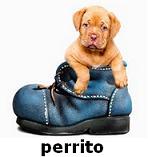Before entering fully into the meaning of the diminutive term, we are going to proceed to know its etymological origin. In this case, we can emphasize that it is a word that derives from Latin, exactly from “diminutivus”, which can be translated as “relating to making small”. A word that was formed from the sum of three components:
-The prefix “de-”, which is used to indicate “direction from top to bottom”.
-The verb “minuere”, which means “to make smaller”.
-The suffix “-tive”, which is used to indicate direct or indirect action.
Diminutive is that which can cause something to decrease or be reduced . The term is usually used in the field of grammar to qualify a suffix that reflects the devaluation or reduction of what is denoted by the word to which it is linked. The concept that is created with a suffix of this type is also called diminutive.
 Let us remember that a suffix is an affix : a morpheme that alters the grammatical properties of a lexical base. It is specifically about the affix that is located after the base.
Let us remember that a suffix is an affix : a morpheme that alters the grammatical properties of a lexical base. It is specifically about the affix that is located after the base.
The diminutive suffix can be used when you want to minimize the importance or size of something. For example: “I'm trying to solve a little problem at the office but don't worry, it's not complicated at all,” “When I fell I got a scrape on my leg,” “Last night I only ate a little piece of cake.”
As can be seen in the examples mentioned, “problemita” , “scratch” and “trocito” are diminutives of problem, scratch and piece, respectively. A “little problem” is a problem that is not serious, while a “little scratch” is a superficial or minor scratch. A “piece” , on the other hand, is a small piece.
In the same way, we cannot ignore that diminutives are commonly used with personal names. Specifically, this usually happens when there are several people in a family with the same name and this is how they can be identified. An example would be if the father's name is Antonio and his son's name is too. In that case, you can resort to calling the adult Antonio and the little Antoñito.
The diminutive can also reflect affection or sympathy : “Hello, chubby! How are you? I really wanted to see you” , “Look at what a beautiful little dog” , “You are a very responsible little man” .
It should be noted that, in some cases, the diminutive can even be used in a pejorative or derogatory way: “Are you going to spend a lot more time grooming your hair? We're getting late…” , “Tomorrow we're going to play against a little team from the interior whose name I don't remember.”
Furthermore, it must be established that in Spanish the most common diminutives are those formed using the endings or suffixes “-ito” or “-ita”. However, that does not mean that there are also other endings that achieve the same objective such as “-in”, “-ina”, “-illo”, “-illa”; “-ico”, “-ica”, “-uco”, “-uca”…
Examples with these diminutives are words such as pajarillo, niñina, besín, chupetillo, vestidico...
